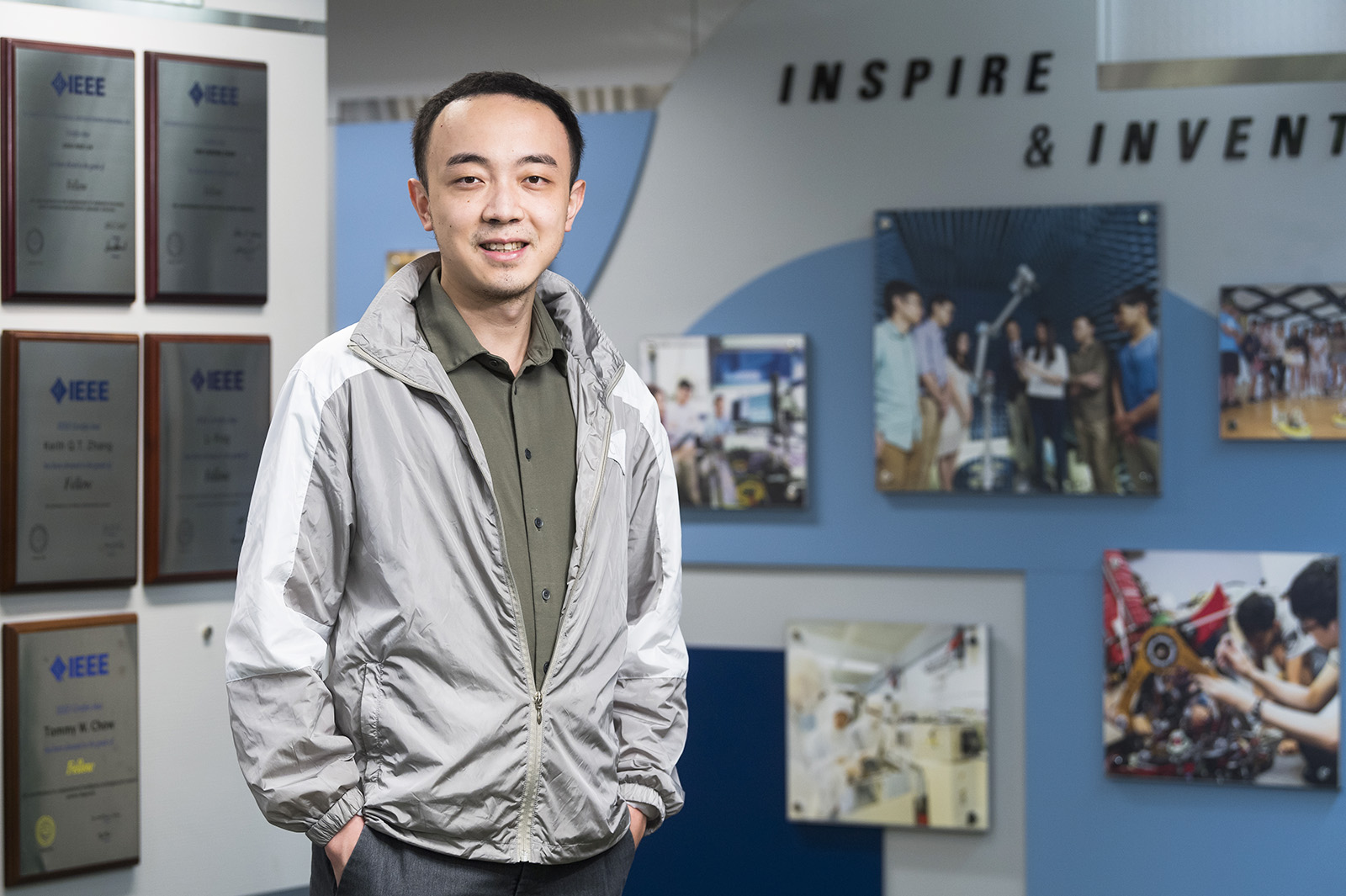
An exemplary scientist at City University of Hong Kong has been named as one of the global Top 50 Chinese Young Scholars for his outstanding academic performance, impact and potential in AI research.
Dr Li Haoliang, Assistant Professor in the Department of Electrical Engineering, won in the category of AI+X, which means AI-driven frontier cross-disciplinary areas, including autonomous driving, quantum computing, dialogue systems, urban computing, and biological computing.
Dr Li’s research interests include AI security and building a robust recognition system for machine learning that can perform and generalise well in a continuously evolving environment.
Existing machine learning algorithms for tackling such evolving environment require consistent data from the current target domain for adaptation to take place. This process, though, is not flexible and cannot satisfy the real-time requirement of some applications, such as a self-driven car that needs to adapt to changes in the weather and sunlight.
In response to these challenges, his team has invented a novel framework called Latent Structure-aware Sequential Autoencoder (LSSAE).
“The generalisation of a model in a non-stationary environment is a challenging and underexplored research area. LSSAE is a probabilistic framework that can model the underlying latent variables across domains that have a promising generation capability for predicting unseen target domains,” said Dr Li.
The success of machine learning techniques typically depends on the assumption that training data and test data are sampled independently and identically from similar distributions. However, this assumption does not hold when deploying the trained model in many real-world environments where the distribution of test data varies from training data. This distribution discrepancy, the so-called distribution shift, can lead to a dramatic decrease in the performance of machine learning models.
The team identified two major factors, namely covariate shift and concept shift, as accounting for the drift in data collection and labelling procedure, respectively, and proposed two modules to help improve the consistency of the training and test data.
Dr Li also focuses on AI security research. Face recognition as a convenient automatic identity verification approach has become increasingly common, which in turn has led to security issues in academia and industry. On account of its easy deployment, a presentation attack, also known as a spoofing attack, threatens the stability of face recognition systems. That’s why Dr Li’s team is exploring new methods for detecting face presentation attacks.
The selection of Chinese Young Scholars is made by the technology company Baidu to encourage those in the AI field to aspire to more influential achievements and identify high-potential young Chinese leaders in technology.
According to Baidu, selection was based on more than 186,000 papers and nearly 90,000 scholars from all over the world. Big data mining technology was used to select 150 high-potential young scholars of whom 50 belong to the interdisciplinary field of AI+X.


